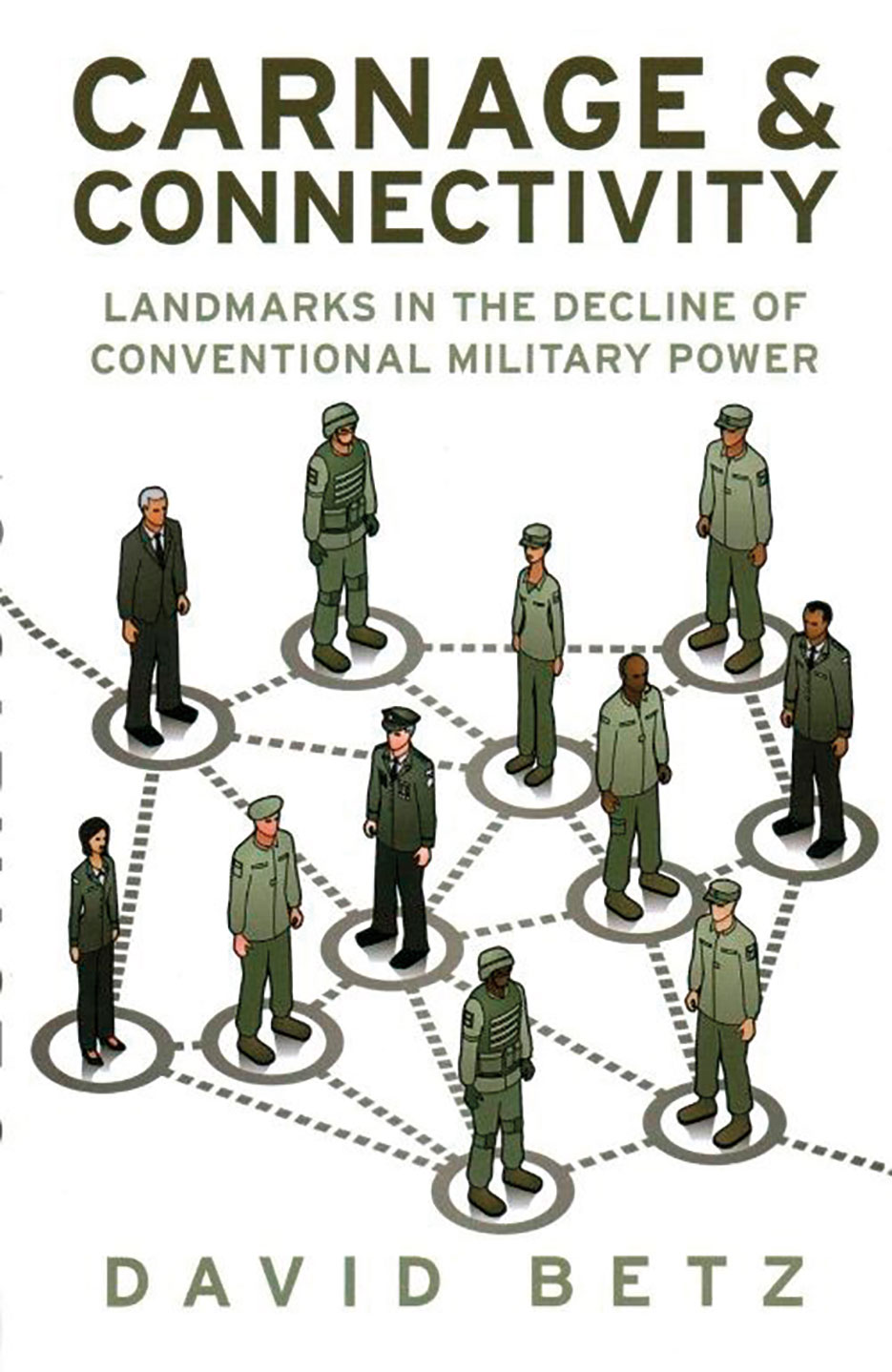Журнальный клуб Интелрос » Joint Force Quarterly » №83, 2016

Carnage and Connectivity: Landmarks in the Decline of Conventional Military Power
By David Betz
Oxford University Press, 2015
264 pp. $50
ISBN: 978-0190264857
Reviewed by Jeffrey Meiser
One approaches the first few pages of Carnage and Connectivity with a sense of trepidation. Do we need another book invoking Carl von Clausewitz’s “remarkable trinity” to explain the changing character (but not nature!) of war? Do we need another book critiquing revolutions in military affairs (RMAs) as unrealistic technophilia? Do we need another book parsing the meaning of cyber power? With a deep sense of foreboding I plowed on, expecting my pessimism to be confirmed. But then I encountered pithy writing, unique insights, and even detected a sense of humor. While Carnage and Connectivity covers well-trodden ground, it does so with exceptional clarity, biting critiques, and the self-confident voice of a seasoned (if not cynical) scholar.
The book proceeds more or less according to the Clausewitzian framework of “passion, chance, and political purpose.” The first chapter covers Clausewitz 101 in a clean and clear manner, so much so that a beginner in strategic studies could easily read this book without prerequisites. The next chapter describes the historical, social, and cultural context of contemporary war. David Betz makes the nuanced point that every era has its own particular context but that analysts of every era exaggerate the uniqueness of their predicament. He argues that “the passions which drive us to compel others to do our will have themselves not disappeared” (p. 32), but warfare has decentralized and shown a tendency to mutate rather than come to a neat conclusion. War is not obsolescent (as the heirs of Norman Angell argue), it has not fundamentally changed (as “new war” theorists argue), and we cannot master it through technology alone (as some advocates of RMA contend). This last point is the subject of chapters three and four, a particularly devastating critique of proponents of concepts such as “dominant battlespace knowledge,” “rapid dominance,” and “network-centric warfare.” Betz bemoans the transformation of American strategic thinking in the 1990s with this memorable reproach: “The blind faith in military technology that it [RMA] evinced would prove to be the most self-defeating habit of mind since the cult of the offensive wrong-footed the generals of the First World War” (p. 57).
The “tactical hubris and strategic vacuity” of the 1990s set the stage for conflicts of the early 2000s. During the short-lived optimism of 2003, RMA optimists invoked a “new American way of war” to explain the emerging era of U.S. military dominance based on speed and information. Betz is unimpressed: “It is hard to imagine any of history’s great commanders—Zhukov, Patton, Sharon—bothering to list the defeat of Iraq in 2003 on their resumes” (p. 77). Not only was the fighting largely one-sided, but the United States also failed to establish anything approaching perfect situational awareness and, most importantly, failed to understand that rapidly destroying armored vehicles does not mean that you have broken the will of the enemy.
The alleged technocentrism of the “new American way of war” ignores a fundamental component of war, what Clausewitz called the “moral factor.” Betz explains that standoff precision weaponry is no substitute for the will to victory. The renewed importance of “war amongst the people” increases the significance of the moral factor because these wars are protracted, indecisive, and, most importantly, dependent on generating psychological effects among a foreign population. According to Betz, the United States and its allies are particularly disadvantaged in this area because we are a postmodern people resistant to nationalist appeals and Manichean worldviews; we are “post-heroic,” jaded, and detached. In one sentence Betz does more to explain our current reality than a shelf full of strategy books: “A materially weak actor who nonetheless does not believe in his powerlessness possesses a paradoxical strength which can outmeasure that of a materially greater opponent who does not believe in his own power.”
In his concluding chapters, Betz shifts to a somewhat belabored discussion of cyber power that makes use of an interesting comparison with the emergence of airpower in the early 1900s. This discussion does not add much to the already extensive debate on the cyber dimension for a professional military audience. Despite this disappointing conclusion, the core chapters of Carnage and Connectivity present a compelling explanation of the strategic failures of the United States and its allies over the past decade and a half of war. Betz does not provide any neat solutions to our problems, but his text does provide a clear diagnosis of the root cause: our leaders have neither given us a compelling reason for the sacrifices we have made in Iraq, Afghanistan, and beyond, nor have they found allies fundamentally committed to victory. No amount of technological sophistication or tactical proficiency can make up for this intellectual and strategic failure. JFQ